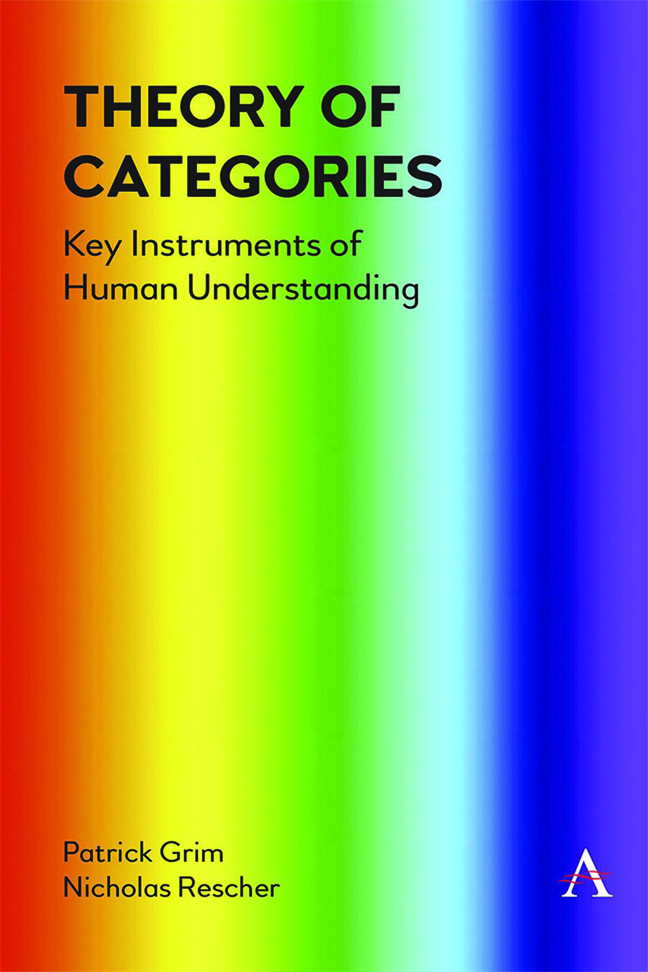2 - The History of Category Theory
Published online by Cambridge University Press: 29 February 2024
Summary
An Arc of History
Our concern is with categories in general, including chemical categories, biological categories, color categories, social and cultural categories, even mystery categories and categories of fictional entities. But much of the philosophical history regarding the nature of categories in general is buried beneath a history focused on a very specific set of categories: the categories, envisaged in a universal classification as the highest kinds or genera. A range of alternative and conf licting proposals as to which are the categories in this sense stretches from Aristotle through Kant and Husserl to the present.
Which are the highest categories is a topic of controversy, both historical and contemporary. We have also noted the ancient debate (as old at least as Porphyry) as to whether the categories are (mere) human contrivances or reflect objective differences in the nature of things via natural kinds. The philosophical history reveals a range of different approaches to the nature of categories – envisaged alternatively as metaphysical, epistemic, linguistic, or pragmatic. But it also reveals an intriguing trail of development through these approaches. In broad strokes, the history of categorytheorizing exhibits an increasing naturalization. We will trace that trail of changing interpretations of the categories through exemplars in Aristotle, Avicenna, the Ramist Revolt, Locke, Kant, Peirce, Frege, Husserl, and Ryle to contemporary debates.
The two central areas of debate, both historically and in contemporary guise, are debates as to which the categories are and to what they are. The lesson we draw from history is that both areas of controversy reflect deep philosophical mistakes. One mistake is the presupposition that there is some unique and ultimate set that are the categories. Another is the mistaken assumption that categories must fall to one side or the other of a false metaphysical/epistemic divide.
Aristotle
Aristotle was equivocal as to whether categories are about language or about reality. But this is understandable, given that our informative talk about things is an endeavor to make manifest what things actually are, adequatio ad rem: “approximation to reality” usually taken as “correspondence to fact.” All of the Aristotelian categories indicate different aspects of what something is or does.
Aristotle's interpreters are not unanimous with regard to the nature and function of his Categories. But his main Anglo-Saxon expositors have approached the matter from an epistemic point of view.
- Type
- Chapter
- Information
- Theory of CategoriesKey Instruments of Human Understanding, pp. 33 - 58Publisher: Anthem PressPrint publication year: 2023



